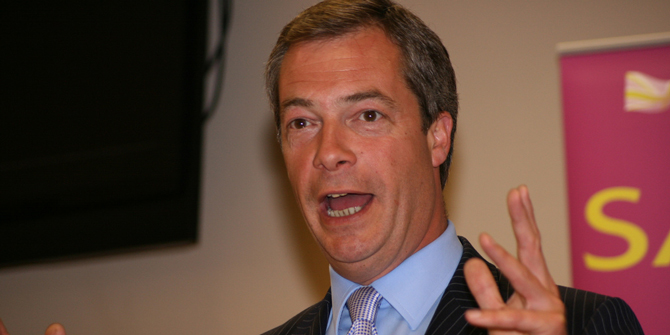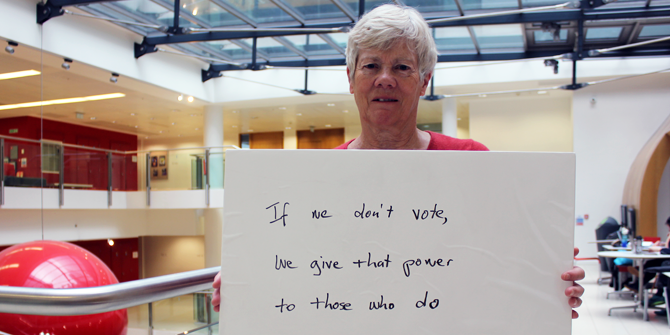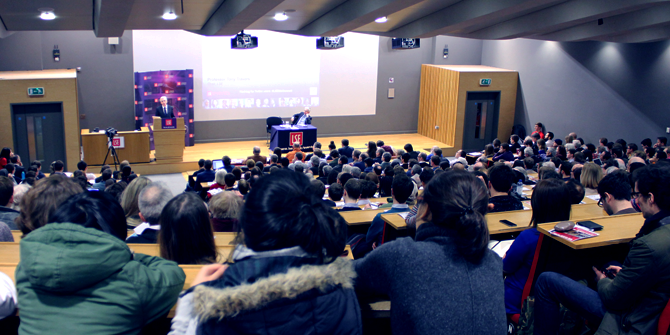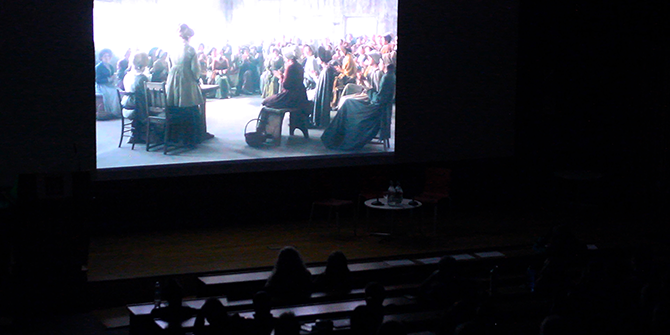
As voters go to the polls for the Sheffield, Brightside & Hillsborough by-election on the 5 May, Martin Rogers suggests that it the performance of The United Kingdom Independence Party (UKIP) which is of greatest interest.
The by-election for the Parliamentary seat of Sheffield Brightside and Hillsborough by-election will be held on the 5 May to coincide with the Local Elections in England. The seat is vacant after the death of sitting MP Harry Harpham. The contest in this very safe seat should be an easy hold for the Labour party, perhaps with an increased majority, but what is of greater interest here is the electoral fortunes of the Party that finished a distant second to Labour at the 2015 General Election: UKIP.
A Safe Seat
The seat of Sheffield Brightside and Hillsborough is one of the safest seats in the country so it is likely to be a non-contest. Additionally, recent election history has shown that the Labour party under both Jeremy Corbyn and Ed Miliband has been successful at winning safe seats and increasing its majority in them. This by-election takes place in early midterm after six years of Conservative majority and Conservative-led coalition government which has undertaken a programme of fiscal austerity and is now mired in public arguments and splits over Britain’s referendum of the European Union. In the seat itself, every councillor in every ward is a member of the Labour party, which suggests Labour is dominant in the area. All of these factors point to a likely comfortable victory for the Labour party.
UKIP
Nevertheless, the political phenomenon of greatest interest here is, perhaps, that of UKIP. After UKIP’s failure to turn their near four million votes into more than one parliamentary seat at the 2015 General Election and their failure to make inroads into Labour’s vote in Oldham West and Royton, UKIP faces pressure to retain its position as a significant political force in Britain. In the contest for Sheffield Brightside and Hillsborough, UKIP should have a number of factors in its favour which mean that, while it is very unlikely to come close to winning the seat, it needs a strong performance. Six years of fiscal austerity, the higher salience of the EU provided by the debate about the UK’s referendum on EU membership, Conservative splits and a slowing economy mean that a number of factors should be in place for UKIP to do well. Additionally, Opposition Leader Jeremy Corbyn’s intervention on migrant benefits, he opposes EU migrants having to wait to receive benefits in the UK, risks putting him at odds with some of Labour’s supporters and, potentially, boosting UKIP.
UKIP’s prospects
UKIP finished in second in Sheffield Brightside & Hillsborough at the 2015 General Election with 8, 856 votes to Labour’s 22,663. Before this UKIP came 5th in 2010 with 1,596 votes (behind the BNP on 3,026) but in May 2015 UKIP were second with 8,856. Labour enjoyed a majority of 13,807 but the growth in UKIP’s vote since 2010 is significant. These vote numbers indicate that UKIP should not seriously threaten victory in the seat but this is exactly the sort of seat that UKIP where needs to perform well in order to maintain its relevance as an electoral force. Some demographic aspects of the area point to it being favourable to UKIP: it is described by UK Polling Report as the most working class seat in Sheffield and UKIP has tended to do well amongst working class voters. Also, UKIP has tended to perform well in safe seats where they have no chance of winning but voters then tend to ‘shy away’ from UKIP if they appear to win a seat. Finally, the debate about Britain’s referendum on leaving the EU has meant that UKIP’s key issue of Britain’s membership of the European Union is taking political centre stage.
Local demographics
Additionally, the Burngreave, Firth Park, Shiregreen and Brightside and Southey wards all score highly in terms of their measures of deprivation which may also provide voters attracted to UKIP. However, the seat is also ethnically diverse which could be less promising for UKIP. The ward of Burngreave had a BAME population of over 60% (2011 Census) which makes it the most ethnically diverse ward in Sheffield. The Southey ward could perhaps be the most favourable to UKIP’s message. Only 7.4% of the population of Southey was of an ethnic minority background at the last census, much of the area is within the top 10% of most deprived areas in the entire country and some of the area is within the 5% of ‘most severely deprived’ areas. Figures from 2010 report that levels of deprivation are high, Child Well Being Index scores are worse than average, crime is ‘significantly high’, education attainment rates are ‘low’ at Key Stage 2 and ‘very low’ at Key Stage 4. These factors mean that Southey should be fertile ground for UKIP or other populists amongst a population not sharing in success currently enjoyed by others. Whether or not UKIP is able to capitalise on this potential will be highly indicative of its electoral future.
Are conditions ripe for a UKIP-type populist party to thrive?
All of the factors above mean that UKIP, whilst it is highly unlikely to come close to winning the seat, needs to show that it is able to make inroads in such seats. At this moment, given the disunity and unpopularity of both the Conservative and Labour parties, there may be a once in a generation opportunity for another party to win over a large number of voters. Populist movements of left and right are thriving in a number of Western counties as incomes stagnate, the migration crisis continues and recent terrorist attacks increase fear amongst the population. Great Britain is unusual in that no country-wide movement as yet emerged similar to Donald Trump in America, Norbert Hofer in Austria, the Front National in France, AfD in Germany or others across Scandinavia and elsewhere in Europe. Given all of the numerous factors in UKIP’s favour it must start to deliver votes or it may find that its time has passed.
 For the latest analysis of 2016’s electoral contests, go to UK Elections 2016 on GovBlog.
For the latest analysis of 2016’s electoral contests, go to UK Elections 2016 on GovBlog.
 Martin Rogers is a recent graduate of the Department of Social Policy at the LSE and host of the LSE Department of Government’s video series The HotSeat
Martin Rogers is a recent graduate of the Department of Social Policy at the LSE and host of the LSE Department of Government’s video series The HotSeat
Follow Martin on Twitter – @MNBRogers





